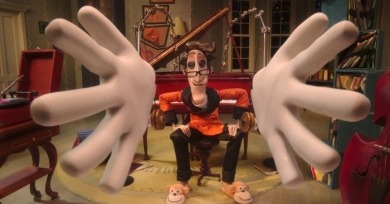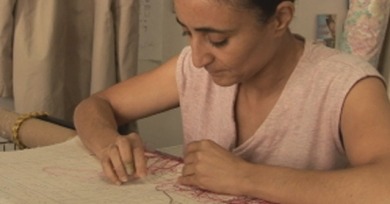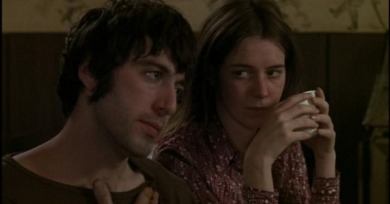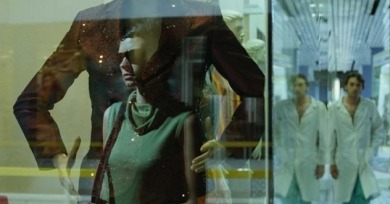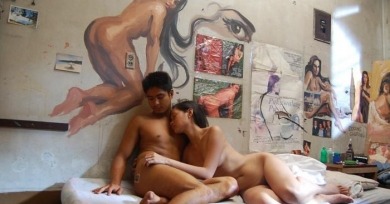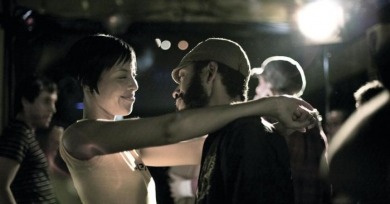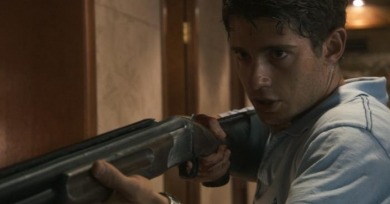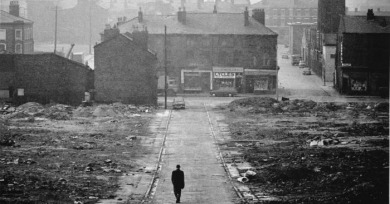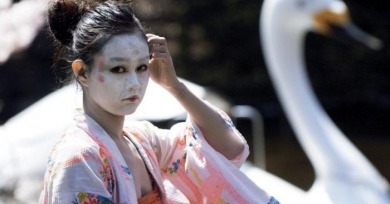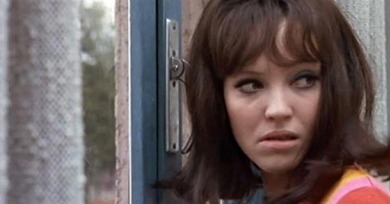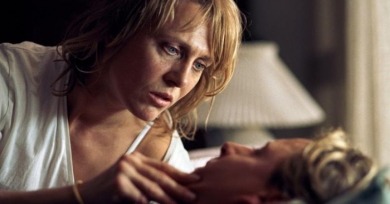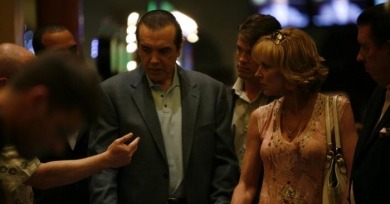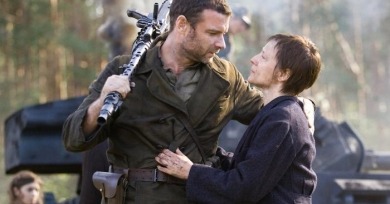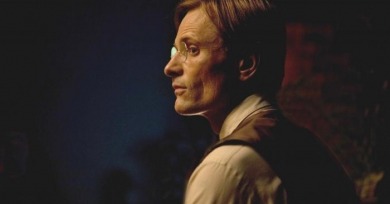Reviews
If the survival of theater-based movie viewing rests, as some argue, on the proliferation of more-cinema-than-cinema technologies like IMAX and 3-D, then we could do much worse than a landscape of features as painstakingly and winningly realized as Henry Selick’s stereoscopic 3-D puppet show.
Given its pedigree, it’s surprising that The Panic in Needle Park has been so overlooked in the decades since its 1971 release.
Set inside a majestic Art Deco movie house in exquisitely grimy disrepair, with airy, labyrinthine stairwells and damp, dark screening rooms, the film finds surprises around every corner yet preserves the building’s mystery even after 85 exhaustive minutes.
Like many other modestly budgeted American indies, Jenkins’s film follows two people getting to know each other, as they wander an expressive cityscape, over the course of one day—aloofness gives way to intimacy, flirtation transitions into intellectual probing, daytime turns to night.
The trend may have originated with Danny Boyle’s Shallow Grave, but there’s been a distinct thematic shift in horror films over the past decade or so, from the struggle between good and evil to the revelation of the evil that apparently resides in all of us.
The cinema of Terence Davies seems to be having a tiny renaissance right now, as the release of his new film, the documentary/tone poem Of Time and the City, coincides with a short retrospective of his work at New York’s Museum of Modern Art.
German filmmaker Doris Dorrie plays the Ozu card to the hilt in Cherry Blossoms. Riffing on Tokyo Story, she sends her elderly married protagonists, Rudi (Elmar Wepper) and Trudi (Hannelore Elsner), from their small hamlet in Bavaria to visit two of their three adult children in Berlin.
Ole Bornedal (director of Nightwatch—both the original and U.S. remake) lives up to his English title with Just Another Love Story, a coolly modulated mistaken-identity amour fou bruised and bloodied all over by healthy run-ins with familiar noir and thriller additives.
From the start, Yonkers Joe pitches the spectator directly into a world of tough-talking gamblers and sharks, where the dice are loaded, hands move quickly, and there’s always a scam in the offing.
Jewish-superhero movies may be thin on the ground, but that’s no reason to welcome Defiance as anything other than an old-fashioned adventure yarn hobbled by its own sense of religious significance.
Sympathy for the devil is a common theme in the recent crop of Nazi and Holocaust films, with Kate Winslet and Tom Cruise both imbuing varying degrees of good will in their goose-stepping characters.
